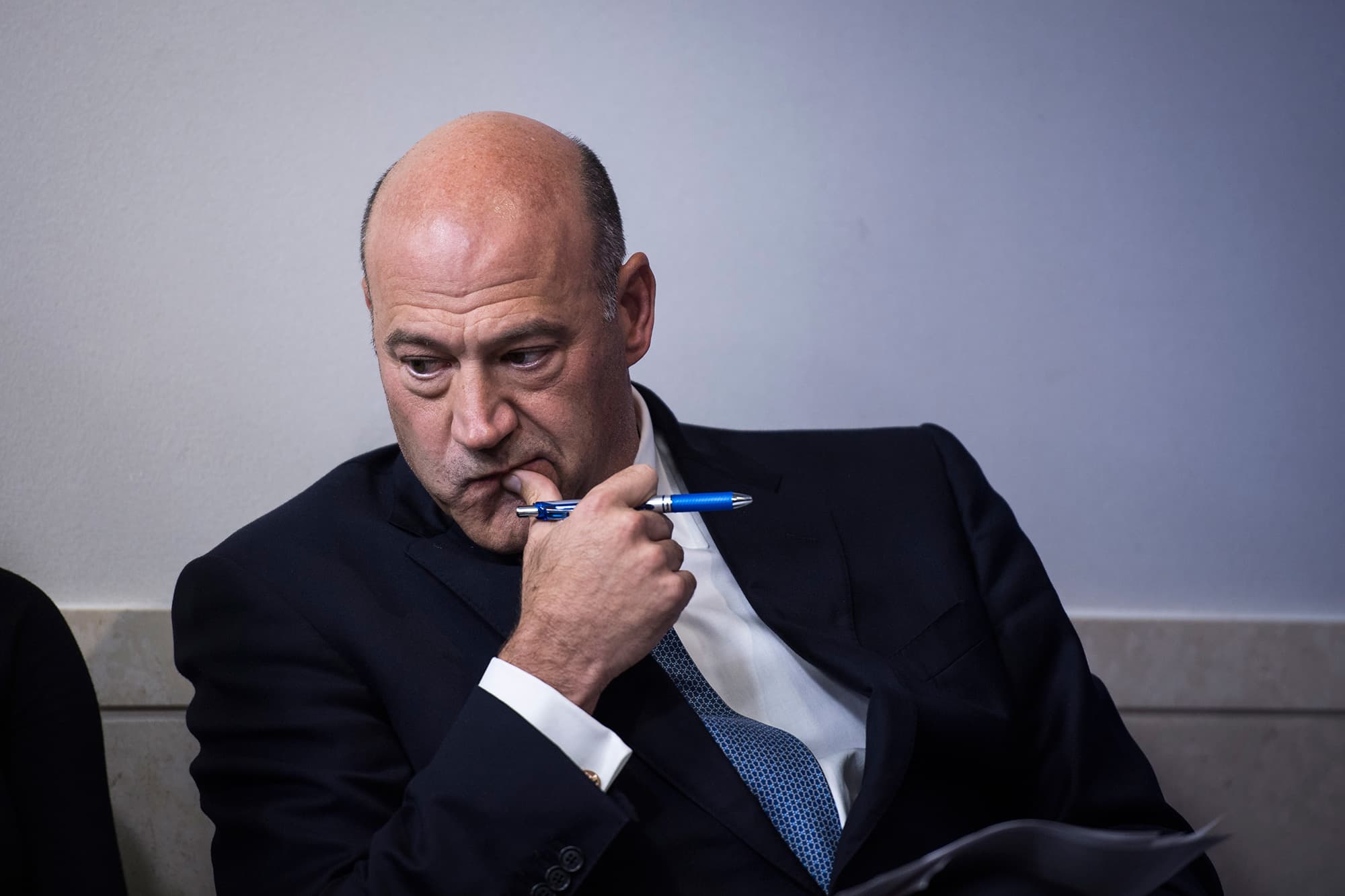
White House chief economic adviser Gary Cohn.
Jabin Botsford | The Washington Post | Getty Images
Gary Cohn, who once served as President Donald Trump’s top economic advisor, said Monday that he’s still unsure whether he will support the president’s reelection bid or back former Vice President Joe Biden.
Cohn said that even though he’s a Democrat, he tends to vote whichever candidate he believes will have the most positive impact on the U.S. economy.
“I honestly haven’t made up my mind. I’m really eager to see an economic debate between the two of them,” Cohn told CNBC’s “Squawk on the Street” from Long Island, New York. “I actually vote on issues.”
The former Goldman Sachs president served as Trump’s first director of the National Economic Council until April 2018, when disagreements over policy priorities and a protectionist trade agenda led to Cohn’s departure. Larry Kudlow, a former CNBC contributor, now holds that position.
Neither the Trump campaign nor the Biden campaign immediately responded to CNBC’s request for comment.
Asked what types of policies Cohn would like to see from Congress and the White House, Cohn said he’d favor a more-targeted approach to another round of Covid-19 stimulus. Many small businesses across the U.S. are still in dire straits and in need of additional relief from government legislation to prevent larger corporations from crushing mom-and-pop shops.
“The first set of fiscal stimulus was a blunt instrument: We sort of spread it everywhere. Which at the time was the right thing to do. I think at this point we need a much more detailed, or scalpel-like approach,” he said. “And the place where we need it the most is in the small-business community.”
“Our small businesses in this country — they are key to our success, they are key to our economic growth and they are key to jobs — they still are hurting,” he added. “They’re really in need of more stimulus, they’re in need of more help.”
Cohn said that the small-business support could come from either the federal government via direct payments or through state or local governments backed by Washington support.
Lawmakers remain split over whether — or how much — additional fiscal stimulus is necessary after Congress passed the $2 trillion CARES Act in March. Most Democrats argue that Republicans don’t appreciate the severity of economic downturn and that efforts to pass “skinny” relief bills aren’t sufficient.
All Senate Democrats present last week voted against such a water-down GOP bill that would have reimposed enhanced federal unemployment insurance at a rate of $300 per week, half of the $600 weekly payment that expired at the end of July.
Treasury Secretary Steven Mnuchin told CNBC earlier Monday that he doesn’t think now is not the time to worry about the size of the federal deficit or the Federal Reserve’s balance sheet.




